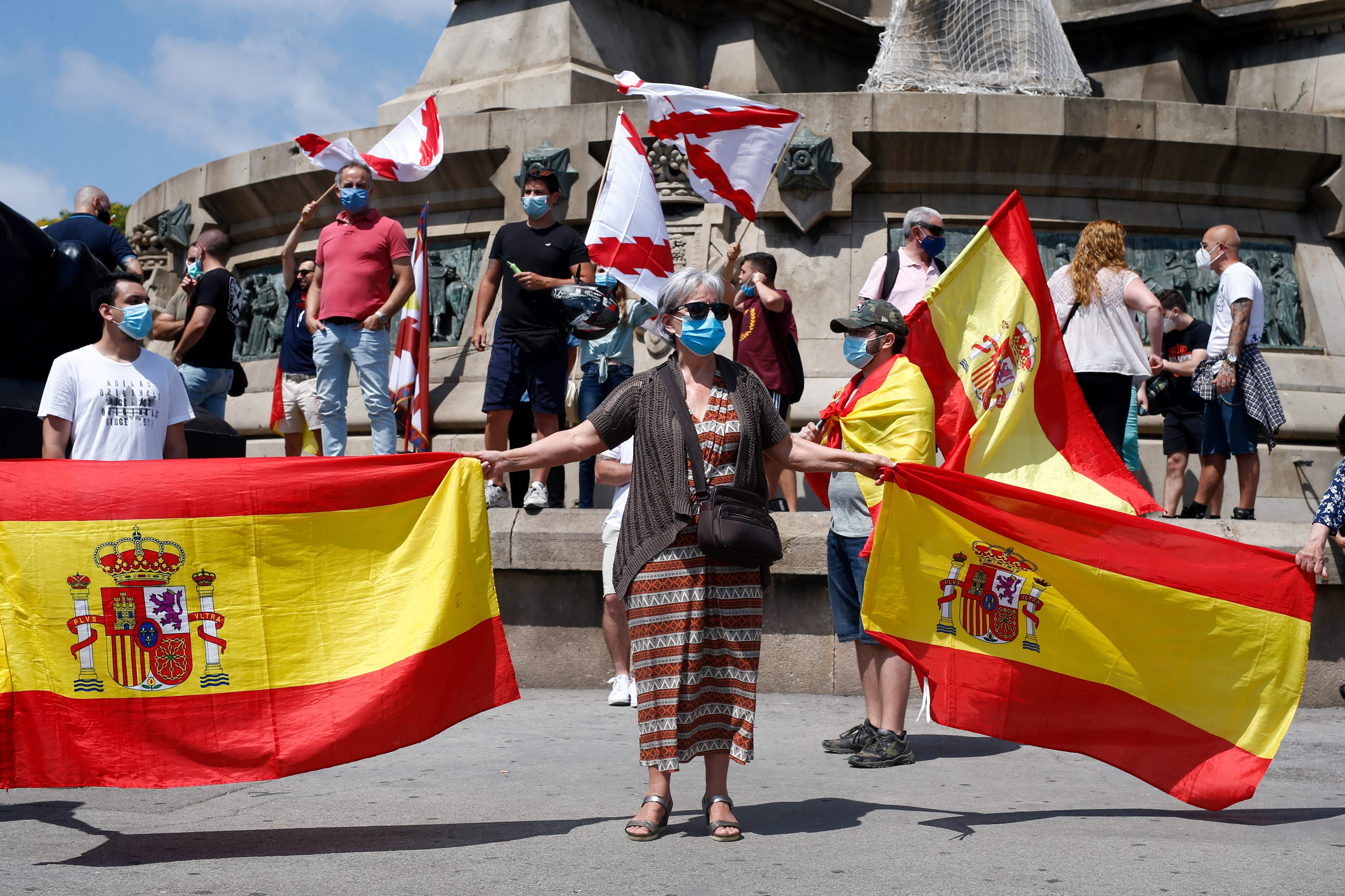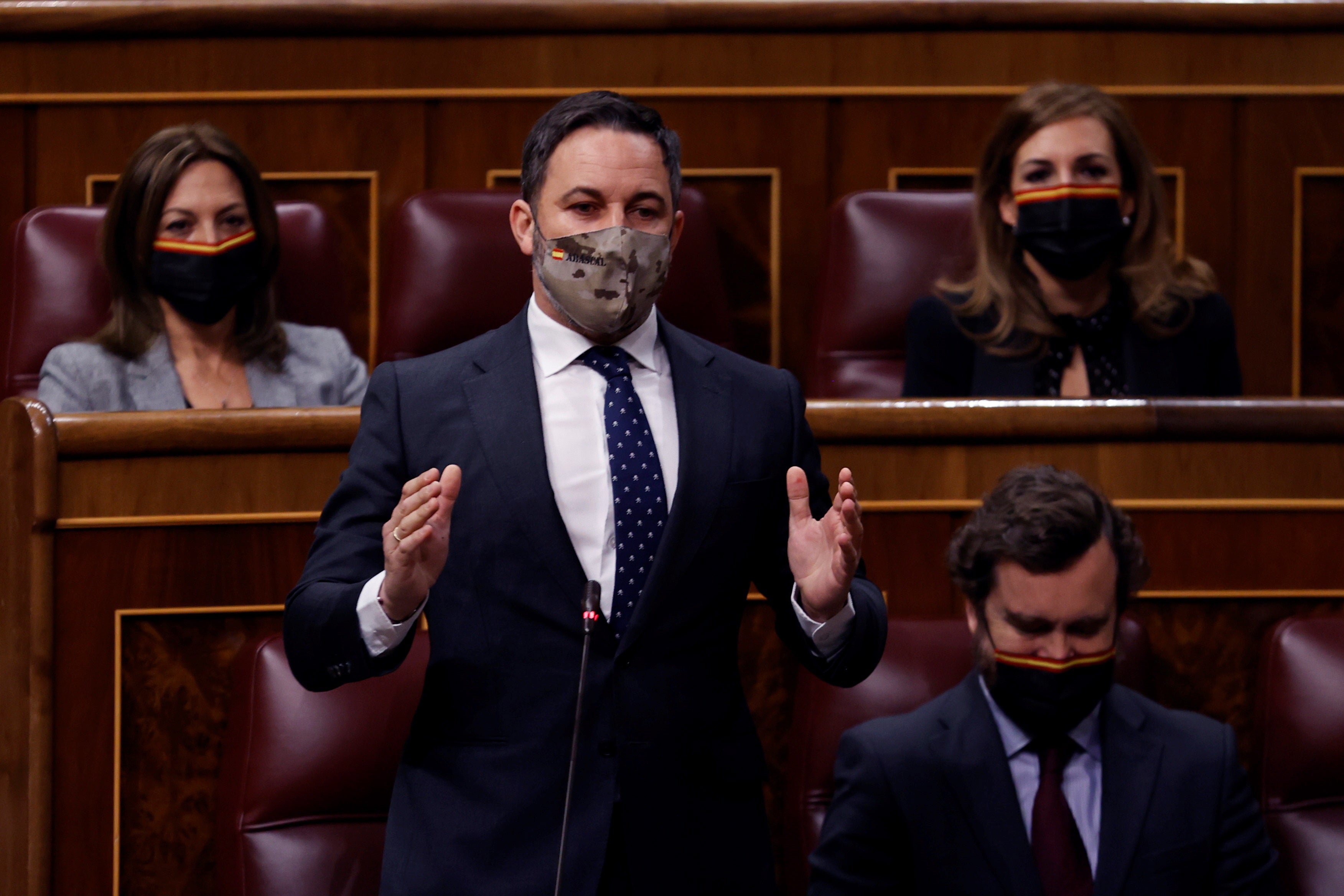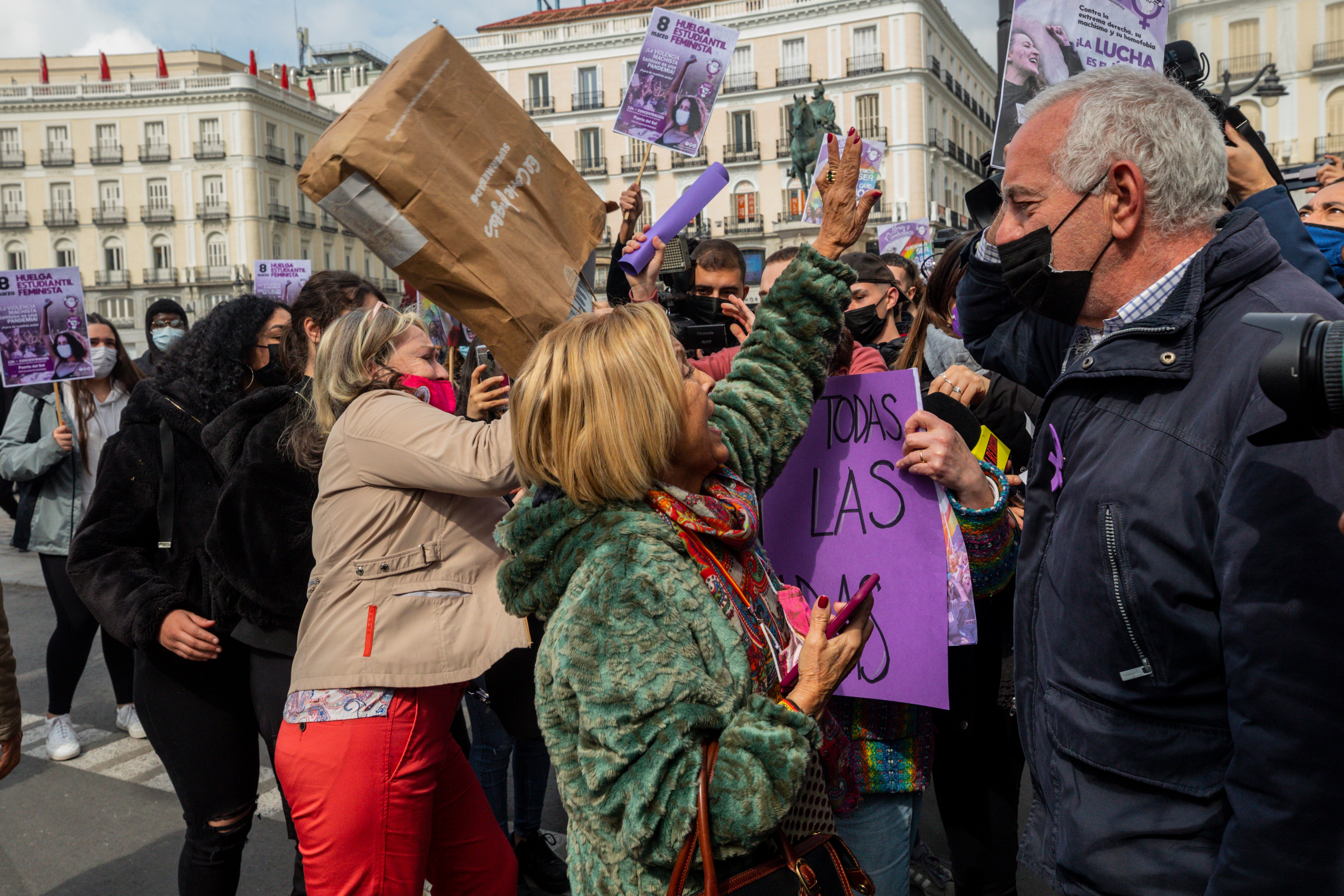Spain’s far right finds its voice once again
The Vox party is on course to become the second largest in the country as the right wing gains popular support, reports Graham Keeley in Madrid


Life-long conservative People’s Party voter Pilar Giménez has switched her allegiance to the far-Right after becoming disillusioned with the established parties.
She says: “Spain needs change right now and Vox is the only party which is going to make that happen.
“The PP does not do what it says it is going to do, there have been lots of corruption scandals, I have had enough.”
Giménez, 28, is typical of a growing exodus from the PP which is boosting the fortunes of Vox.
A poll published last week by the respected Centre for Sociological Investigations gave Vox 15 per cent, just three points behind the PP, whose support fell from just under 21 per cent to below 18 per cent.
Vox leader Santiago Abascal has taken advantage of a clash between centrist and conservative parties which has rocked Spain’s increasingly polarised politics.
Spain’s centre-Right has been divided three ways – between the PP, Ciudadanos (citizens’) party and Vox – since 2019 when the far-Right party won 52 seats at the general election, making it the third biggest force in Spanish politics.
Now Vox threatens to overtake the PP and become the second largest party in Spanish politics, behind the Socialists.
The party made a stunning breakthrough in Catalonia last month, winning 11 seats in regional elections.
The next test for voters will be regional elections in Madrid on May 4.
Pablo Simón, a political analyst from the University Carlos III in Madrid, told The Independent: “If Ciudadanos loses out in elections in Madrid, it will benefit Vox and the PP.”
For decades Spain was among those European nations to reject the hard Right because of the legacy of the dictatorship of General Francisco Franco.
Now, it appears, the far-Right ideology has not only won popular support but has spanned generations.
Isabel Medina Peralta, 18, has become the youthful face of the extreme Right. She uses Instagram and YouTube instead of public rallies to push her message.
She seems a world away from the popular image of far-Right supporters as middle-aged men with shaved heads.

She was catapulted to public attention when she made anti-Semitic remarks at a commemoration of the Blue Division, a Spanish military unit of volunteers who fought alongside the German army in Russia during the Second World War.
Wearing the blue uniform of the neo-fascist Falange movement, which features a yolk and arrows symbol, she said: “The enemy is always going to be the same albeit wearing different masks: the Jew.”
At the meeting last month at a cathedral in Madrid, she said that communism was a, “Jewish invention to pit the workers against one another”.
Ms Medina now faces charges for race hate crimes after Spain’s public prosecution service launched an investigation into her remarks.
Police compiled a report which said her comments allegedly constituted a hate crime and she may be indicted if the prosecution agrees.
However, Ms Medina told The Independent: “I was not guilty of hate crimes. I did not make remarks about the Jewish race or the Jewish religion. I have nothing against them.”
Her comments have caused outrage among Spain’s Jewish community.
The Federation ofJewish Communities in Spain said it was, “unconscionable in a country with rule of law and full democracy for these serious accusations to go unpunished”.
The military rally, at which a Catholic priest officiated, prompted Rodica Radian-Gordon, Israel’s ambassador, to tweet that the statements were, “repugnant and have no place in a democratic society”.
Spain’s Foreign Minister Arancha Gonzalez Laya joined in the chorus of condemnation, tweeting: “Disgusted by such statements. We will continue our relentless fight against anti-Semitism.”
Ms Medina’s rise to infamy comes as Spain has been riven by weeks of violent protests over the jailing of radical left-wing rapper Pablo Hasél.

His nine-month sentence for glorifying terrorism and slandering the former king Juan Carlos has prompted a debate over free speech. Critics question why Mr Hasél is in prison while Ms Medina remains – so far – unpunished.
Hundreds protested in Madrid over the weekend against Mr Hasél’s jailing, claiming the phrases which have sent him to jail are merely opinions.
Esteban Beltrán, the director of Amnesty International Spain, says: “They may be distasteful or shocking but expressions that do not clearly and directly incite violence cannot be criminalised.”
Prime Minister Pedro Sánchez has announced a reform to extend freedom of expression and prevent jail sentences for voicing opinion.
Join our commenting forum
Join thought-provoking conversations, follow other Independent readers and see their replies
3Comments